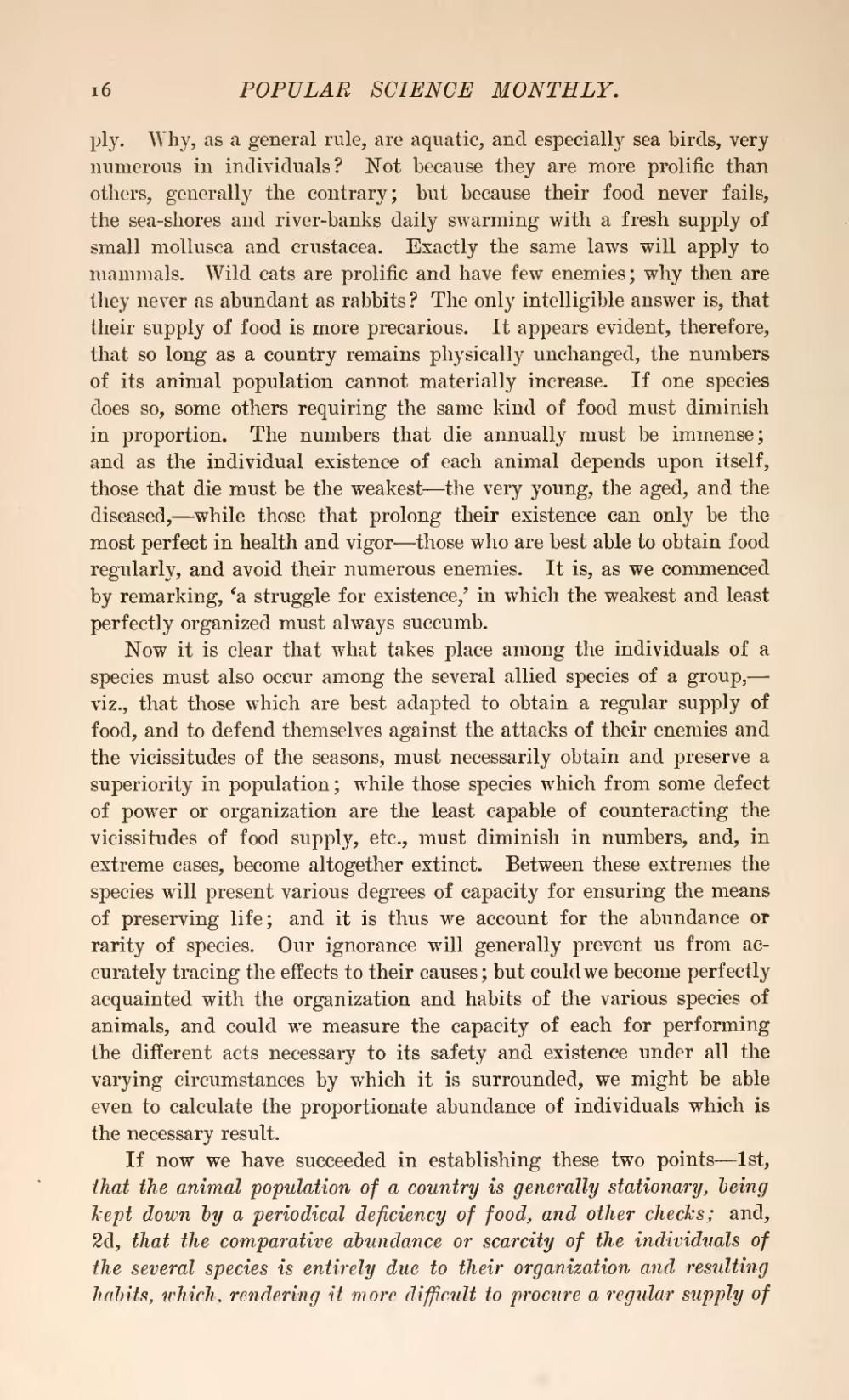ply. Why, as a general rule, are aquatic, and especially sea birds, very numerous in individuals? Not because they are more prolific than others, generally the contrary; but because their food never fails, the sea-shores and river-banks daily swarming with a fresh supply of small mollusca and Crustacea. Exactly the same laws will apply to mammals. Wild cats are prolific and have few enemies; why then are they never as abundant as rabbits? The only intelligible answer is, that their supply of food is more precarious. It appears evident, therefore, that so long as a country remains physically unchanged, the numbers of its animal population cannot materially increase. If one species does so, some others requiring the same kind of food must diminish in proportion. The numbers that die annually must be immense; and as the individual existence of each animal depends upon itself, those that die must be the weakest—the very young, the aged, and the diseased,—while those that prolong their existence can only be the most perfect in health and vigor—those who are best able to obtain food regularly, and avoid their numerous enemies. It is, as we commenced by remarking, 'a struggle for existence,' in which the weakest and least perfectly organized must always succumb.
Now it is clear that what takes place among the individuals of a species must also occur among the several allied species of a group,—viz., that those which are best adapted to obtain a regular supply of food, and to defend themselves against the attacks of their enemies and the vicissitudes of the seasons, must necessarily obtain and preserve a superiority in population; while those species which from some defect of power or organization are the least capable of counteracting the vicissitudes of food supply, etc., must diminish in numbers, and, in extreme cases, become altogether extinct. Between these extremes the species will present various degrees of capacity for ensuring the means of preserving life; and it is thus we account for the abundance or rarity of species. Our ignorance will generally prevent us from accurately tracing the effects to their causes; but could we become perfectly acquainted with the organization and habits of the various species of animals, and could we measure the capacity of each for performing the different acts necessary to its safety and existence under all the varying circumstances by which it is surrounded, we might be able even to calculate the proportionate abundance of individuals which is the necessary result.
If now we have succeeded in establishing these two points—1st, that the animal population of a country is generally stationary, being kept down by a periodical deficiency of food, and other checks; and, 2d, that the comparative abundance or scarcity of the individuals of the several species is entirely due to their organization and resulting habits, which, rendering it more difficult to procure a regular supply of

